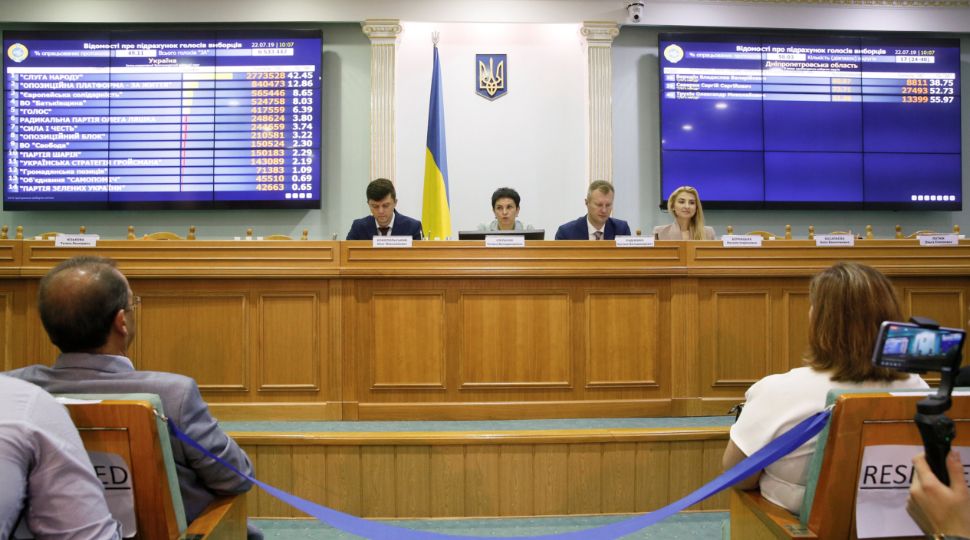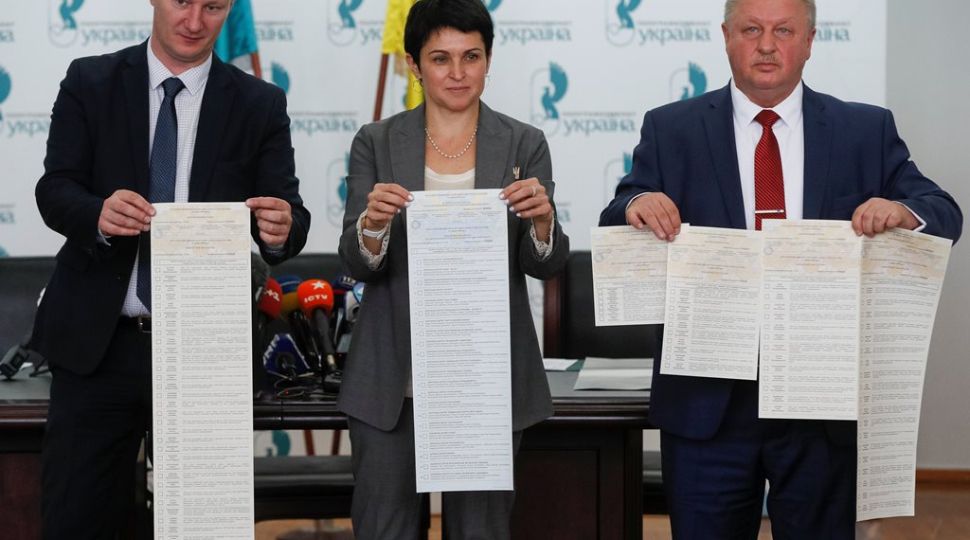What brought about Servant of the People’s success?
The party owes its record-breaking victory to the popularity of President Zelensky. Formally, the president is not the head of the party but he is commonly identified with Servant of the People in the public’s perception. His mass recognition and high ratings (almost 60% of Ukrainians are satisfied with him so far) allowed the party’s candidates, mostly unknown to the wider community, to defeat opponents with significantly more financial resources and broad political connections. The party’s win comes as Ukrainians seek renewal of the political scene, with almost two-thirds declaring they expected to see new faces in politics.
What will the new parliament look like and when will the next government be formed?
Apart from Servant of the People (about 253 seats), four other parties entered parliament. Pro-Russia party Opposition Platform “For Life” (about 44 seats) and European Solidarity (about 24 seats), the party of former President Petro Poroshenko, will be in the opposition. Former PM Yulia Tymoshenko’s Fatherland (about 25 seats), as well as a new party, Voice (about 20 seats), led by Sviatoslav Vakarchuk, the leader of the rock band Okean Elzy, will likely cooperate with the ruling party on an ad hoc basis. Servant of the People will have to constitute its parliamentary majority within one month from the inaugural meeting of parliament (likely to be scheduled for late August), and then propose the candidacy of a new PM, though it will probably strive to set up a new government as soon as possible, maybe in late August to early September.
What issues will the new parliament deal with first?
Initially, the Rada’s agenda will probably include draft laws concerning direct democracy, including rules for conducting national and regional referenda, introducing procedures for impeachment of the president and revoking deputies’ mandates, and the establishment of a citizen’s veto. Parliamentary immunity will likely be abolished because so far it has been usually used to shield deputies from criminal liability for corruption. In parallel, parliament will deal with appointments from a so-called “presidential quota”, which had been blocked by the previous Verkhovna Rada. Among others, this concerns new foreign and defence ministers, prosecutor general, and head of the Security Service of Ukraine.
Will there be changes to the constitution?
During the election campaign, President Zelensky’s associates several times signalled the intention to change provisions of the constitution, but no details were provided. In the president’s milieu, there is probably no consensus as to which of two options—amendments or drafting a new basic law—should be chosen. Any possible changes to the constitution will likely not concern the state system (parliamentary-presidential) but rather strengthen citizens’ rights, although one could also expect a further strengthening of the position of the government and the parliament. Even with an absolute majority, Servant of the People will not have a constitutional majority (300 seats) but the party will be able to get additional votes from Voice or Fatherland, as well as from non-faction MPs.
Will the election results affect Ukraine’s foreign policy course?
According to the Ukrainian constitution, the president is responsible for steering foreign policy. Zelensky declared his intention to continue Poroshenko’s policies regarding deeper cooperation with the EU and NATO while, at the same time, signalling his openness to a more active dialogue with Russia. The new government will support presidential initiatives in this regard. Servant of the People’s electoral programme, among others, mentioned a new opening in Ukraine’s relations with its western neighbours. Therefore, it can be expected that President Zelensky will attempt to improve relations with Poland, especially since historical issues are much less important for him than they were for Poroshenko.





